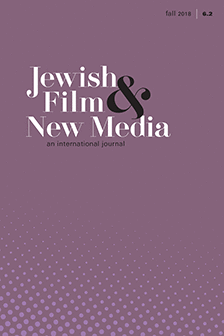Volume 6, Issue 2 (2018) Israeli Cinema and Politics
This issue of Jewish Film & New Media holds the proceedings of the third scholars’ conference on Jewish and Israeli media, which met at Ca’ Foscari University, Venice in the spring of 2017. The conference centered on the political in Israeli cinema and television, or more precisely, the apparent disappearance of political consciousness from Israeli social and cultural life and the advent of a post-political age over the last three decades or so. This phenomenon is not unique to Israel, of course, and reflects wider trends globally. The waning of direct political engagement around the world began in the wake of the Second World War, not only as reaction to what can be called an excess of politics, exemplified by that war, but also because of the relative spread of prosperity in the second half of the twentieth century, the rise and then decline of the welfare state and the gradual domination of the market, which shaped these developments. Yet, because of Israel’s compressed history and the central role ideology played in its rapid political development, these trends have tended to stand out in it with perhaps greater visibility and resonance than elsewhere. In other words, against the ideological crucible in which Israel was created and which shaped much of its history, the declining role of political ideology in contemporary Israeli life is quite remarkable.Introduction
Israeli Cinema and Politics
Yaron Peleg and Eran Kaplan
Articles
From Binding to Crucifixion: The Political Role of Christian Motifs in Israeli Cinema
Yael Ben-Zvi Morad
Personal and National History in the TV Drama Series Pillars of Smoke and The Exchange Principle
Dana Masad
Law and Sedition in Israeli Films: From the Assassination of Itzhak Rabin to the Hilltop Movement
Marcella Simoni

